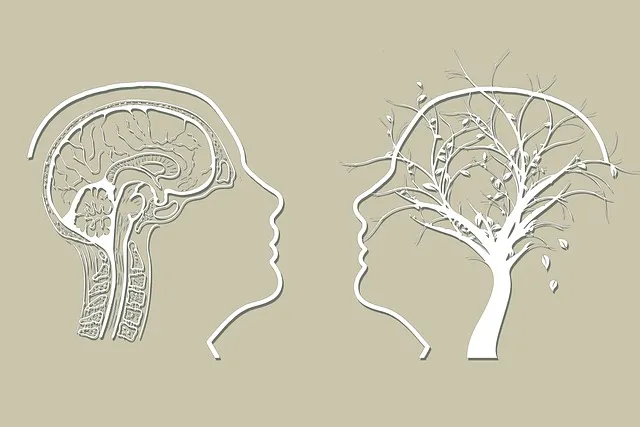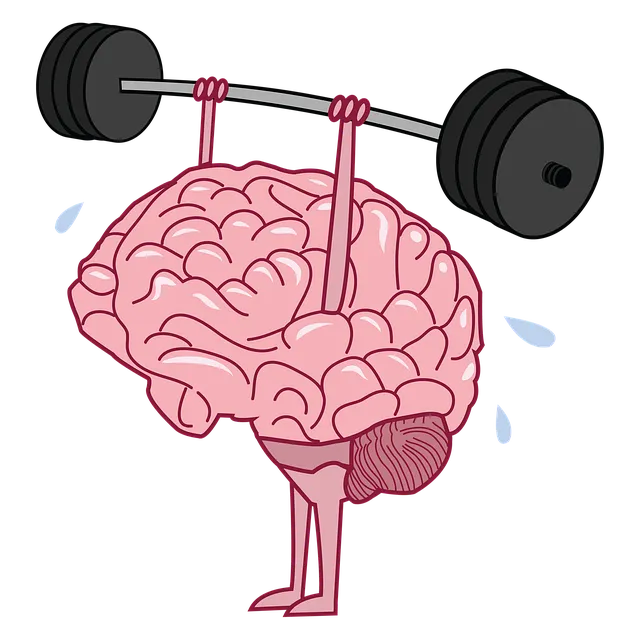Broomfield Kaiser Permanente behavioral health services are at the forefront of mental health data analysis, utilizing both quantitative and qualitative methods to gain deep insights into patient experiences. They integrate advanced digital tools for data collection and cleaning, cultural sensitivity training for providers, and innovative techniques like machine learning algorithms and mindfulness practices. This holistic approach leads to accurate diagnoses, tailored interventions (e.g., Social Skills Training, Mindfulness Meditation), effective policy analysis, and improved clinical outcomes through personalized treatment plans. Advanced analytics promise revolutionary solutions in mental healthcare.
Mental health data analysis is transforming the way we understand and address psychological well-being. This article delves into the intricate process of interpreting mental health data, highlighting innovative practices such as those employed by Broomfield Kaiser Permanente Behavioral Health Services. We explore essential steps like understanding data collection methods and preprocessing to ensure robust analysis. Advanced techniques for interpretation are examined, along with practical implications and future directions in mental health analytics.
- Understanding Mental Health Data: A Comprehensive Overview
- Broomfield Kaiser Permanente Behavioral Health Services: An Innovative Approach to Data Collection
- Preprocessing and Cleaning: Preparing the Data for Analysis
- Advanced Techniques for Mental Health Data Interpretation
- Practical Implications and Future Directions in Mental Health Analytics
Understanding Mental Health Data: A Comprehensive Overview

Understanding Mental Health Data is a multifaceted process that forms the bedrock of effective behavioral health services like those provided by Broomfield Kaiser Permanente. This involves collecting and analyzing various data points, from patient demographics to symptoms, treatment outcomes, and satisfaction levels. By meticulously examining these datasets, healthcare professionals can gain valuable insights into trends, patterns, and correlations within their patient populations, allowing for more precise diagnosis and tailored interventions.
At the heart of this endeavor lies a comprehensive overview that integrates quantitative and qualitative data. Quantitative data, such as survey results and clinical measurements, provides numerical information that can be statistically analyzed to identify significant findings. In contrast, qualitative data from patient narratives, therapy sessions, or focus groups offers deeper understanding by revealing experiences, perspectives, and emotions. Integrating both types of data enables a holistic view, enhancing the effectiveness of programs like Social Skills Training, Mindfulness Meditation, and Confidence Boosting offered at institutions like Broomfield Kaiser Permanente behavioral health services.
Broomfield Kaiser Permanente Behavioral Health Services: An Innovative Approach to Data Collection

Broomfield Kaiser Permanente Behavioral Health Services represents a pioneering effort in mental health data collection and analysis. By integrating advanced digital tools and streamlined processes, this program captures detailed insights into patient experiences, treatment outcomes, and emerging trends within their behavioral health services. This innovative approach not only enhances the understanding of various mental health conditions but also guides evidence-based decision-making.
The Mental Wellness Podcast Series Production, a component of Broomfield Kaiser Permanente’s strategy, plays a crucial role in disseminating knowledge. It offers valuable insights into Stress Management, an aspect that significantly impacts overall mental health. Moreover, their comprehensive data analysis contributes to the development of effective Mental Health Policy Analysis and Advocacy strategies, ensuring that resources are allocated efficiently to address pressing mental health concerns within the community.
Preprocessing and Cleaning: Preparing the Data for Analysis

Before diving into any mental health data analysis, a crucial step is preprocessing and cleaning—a process akin to tidying up a cluttered room before organizing its contents. In the context of Broomfield Kaiser Permanente behavioral health services, this involves meticulously examining and preparing the data for accurate interpretation. It entails handling missing values, identifying and rectifying inconsistencies, and transforming variables to ensure they align with the analysis objectives. This rigorous cleaning process not only enhances data integrity but also safeguards against misleading conclusions.
Moreover, cultural sensitivity in mental healthcare practice plays a pivotal role during this phase. Healthcare provider cultural competency training equips professionals with the skills to navigate diverse patient backgrounds, ensuring that data reflects genuine trends without biases. This is especially relevant when analyzing sensitive topics like trauma support services, where cultural nuances can significantly impact outcomes. By applying these practices, Broomfield Kaiser Permanente can deliver more precise insights, fostering better mental health care tailored to a diverse population.
Advanced Techniques for Mental Health Data Interpretation

In the realm of mental health data analysis, advanced techniques are transforming how we interpret and understand patient journeys. Organizations like Broomfield Kaiser Permanente behavioral health services have pioneered innovative approaches to unearth profound insights from complex datasets. One such method involves leveraging machine learning algorithms to identify hidden patterns and correlations within patient records, enabling more precise diagnoses and personalized treatment plans.
These cutting-edge strategies extend beyond traditional analysis. Techniques such as Mindfulness Meditation and Compassion Cultivation Practices are being integrated into data interpretation frameworks. By considering the impact of these practices on patient outcomes, healthcare professionals can gain valuable insights into holistic well-being. Moreover, Stress Management Workshops Organization plays a pivotal role in fostering resilience and mitigating mental health risks, providing additional dimensions to comprehensive data analysis.
Practical Implications and Future Directions in Mental Health Analytics

The analysis and interpretation of mental health data offer significant practical implications, especially within established healthcare systems like Broomfield Kaiser Permanente behavioral health services. By leveraging advanced analytics, these organizations can gain profound insights into patient populations, identify trends, and tailor interventions more effectively. This allows for personalized treatment plans, improved clinical outcomes, and enhanced resource allocation. For instance, predictive models can anticipate relapse risks, enabling early intervention and potentially reducing readmission rates.
Looking ahead, mental health analytics has promising future directions. Integrating data from various sources—electronic health records, social media, wearable devices—can provide a holistic understanding of patient well-being. This can lead to innovative solutions, such as digital interventions for Mental Wellness or Trauma Support Services, enhanced Risk Assessment tools for Mental Health Professionals, and more accurate diagnostic criteria. Such developments have the potential to revolutionize mental healthcare, making it more accessible, efficient, and responsive to individual needs.
Mental health data analysis has evolved significantly, with innovative approaches like those seen at Broomfield Kaiser Permanente Behavioral Health Services paving the way. By integrating advanced techniques and comprehensive data understanding, we can interpret mental health data more effectively. Preprocessing and cleaning play a crucial role in preparing data for analysis, enabling us to uncover valuable insights. As we look towards the future, further exploration of these analytics holds immense potential to revolutionize behavioral healthcare, improving patient outcomes and fostering better mental well-being.






